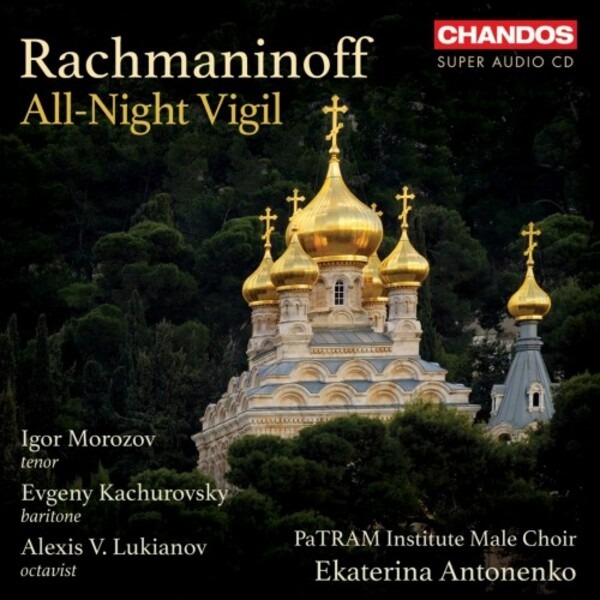

Steve Whitaker, Features Writer
Classical Music: Sergei Rachmaninoff - All-Night Vigil, Op.37
PaTRAM Institute Male Choir
Conductor: Ekaterina Antonenko
Tenor: Igor Morozov, Baritone: Evgeny Kachurovsky
Bass: Alexis V. Lukianov
Chandos CHSA5349
https://www.chandos.net/products/reviews/CHSA5349

And performed by a Russian choir in this persuasively resonant CD from Chandos, the Vigil is gifted a sense of authenticity. Recorded in a space – the Russian Orthodox Convent Monastery, Jerusalem - of sonorous acoustics, the aftertones are reverberant; you can feel the echoes of the ages in the vigour of the tonal bursts.
From the effortful rising and falling swell of ‘Lord, now lettest Thou Thy servant depart in peace’ and the beacon-like clarity of the tenor, Igor Morozov, guiding the combined voices below, we hear a moment perfused with penitential labour. And whilst the piece immediately following, ‘Rejoice, O Virgin Theotokos’, is as exquisitely balanced, but replete with humility, as its celebrant motif, we are reminded, in the gentle, hypnotic sway of the harmonised voices, of how technically difficult it is to distil an extremity of emotion into the formal framework of a vigil.
The achievement is partly one of instinct, and in PaTRAM we have a choir whose voices communicate intuitively and with immense respect for a Russian Orthodox tradition. That the soloists are laden with the weight of tumultuous hindsight adds immeasurably to the effectiveness of Chandos’ recording, both in the power of individual performance, and in sublime counterpoint. We are unlikely to forget the gravitas of Alexis V. Lukianov’s astonishingly deep Bass in the opening passage, ‘Amen. Come, let us worship God, our King’, just as we remember the dark undertow of the church’s history.